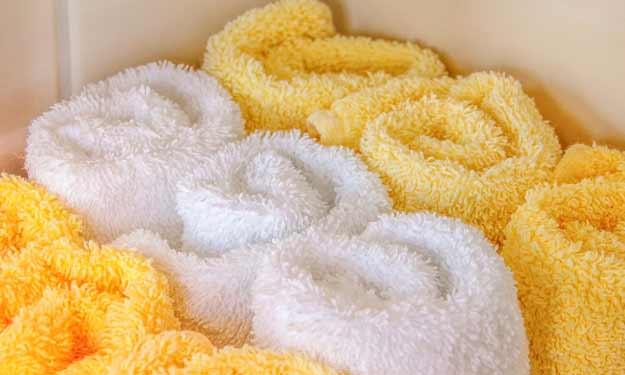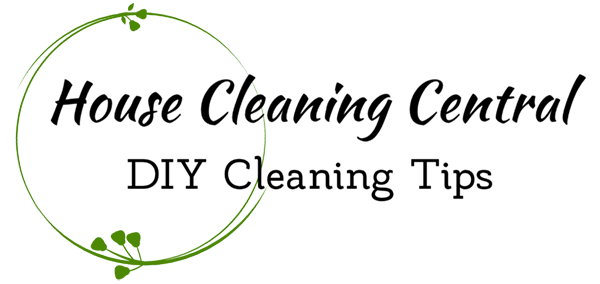Mrs Cleans Favorite Laundry Products

Natural, Clean and Earth Friendly Laundry Products.
Is Your Skin Sensitive to Laundry Products?
Before I get down to my favorite laundry products, let me briefly tell you a something that happened to my daugther. My daughter went through a period of having extremely sensitive skin. She would break out with random skin rashes, hives, and other breakouts. In the beginning, we weren’t really sure what the cause was.
We did the kind of things you’d typically do in a situation such as this like going to the dermatologist, tried specialty skin care products, we tried eliminating certain foods and fabrics, we changed our laundry products and so on.
When we took my daughter to the dermatologist, she was prescribed a high strength corto steroid cream. This kind of cream breaks down collagen and can only be used for 10 days at a time. I had to question, if it’s such a strong product, why would we want to put that on her skin?
We eliminated synthetic fabrics which don’t breathe as well as natural fibers, we had her do an eliminate diet where we eliminated certain foods for a few weeks then reintroduced them to her diet, she changed the laundry products she used and she purchased more natural and organic skin care products.
Despite all she tried, her skin was still breaking out with rashes and hives.
The Aha Moment
In our house, for the most part, we each do our own laundry. The aha moment for me came when I had to fold my daughters laundry and I noticed a heavy fabric softener residue on the towels she washed. When she came home I asked her how much she was adding to her laundry – turns out it was quite a lot.
Because fabric softeners are loaded with chemicals, we now believed this could be the problem behind her skin condition, especially because she has sensitive skin. Not only can these products leave residue on your laundry but your skin as well.
What Did We Do and What Do We Use?
Now we have a plan. We started eliminating laundry products that can leave behind a chemical residue on washed items. We resolved to use safe and natural products that would clean just as well and leave our clothing and linens soft without the use of all those chemicals.
I know when you have a busy household how easy it is to grab laundry products off the grocery store shelf without much thought but if you have someone in the family, like my daughter, who has sensitive skin, maybe a more natural solution will work for you as well.
We started making our laundry soap, we also used baking soda, white vinegar and other natural products to get our laundry chemically free and clean.
Making Powdered Laundry Detergent or (Soap)
Making your own laundry low sudsing soap aka detergent is rewarding in many ways and you only need a few ingredients. Homemade laundry soap decreases the exposure to all those unwanted chemicals and effectively cleans clothing.
Ingredients
- 3 – 5 ounce bars Dr. Bronner’s Pure Castile Bar Soap (I use the Lavender)
- 6 cups Washing Soda
- Lavender Essential Oil or Citrus Essential Oil (optional)
Making the Laundry Soap
Add the following to a food processor:
- Castile soap cut into 1/2 inch pieces.
- Washing soda.
- Add 10 drops essential oil if you use unscented soap and want a light scent.
- Blend to a fine powder.
- Pour into clean, airtight container.
If you don’t have a food processor, you can use a microplane shredder for the castile soap then mix really good into the washing soda. It is best for HE washers if the soap is a fine powder.
How to Use
Start filling the washer with water, for medium loads add 2 tablespoons and 3 tablespoons for a large load. If you wash in cold water, dissolve the laundry soap in hot water first (can use a glass measuring cup then stir in hot water)
If you choose not to make your own laundry detergent there are some good options for those with sensitive skin. Some are Method Laundry Detergent, Nellie’s Laundry Soda, Purex, and Seventh Generation brands.
Other Natural Options to Use in the Laundry
Below are other natural options to use when washing and drying clothes and for cleaning the washing machine. If you opt out of making your own laundry soap and like the brand you are currently using, the following items can be added to help boost what you currently use.
Using White Vinegar in the Wash
I can’t sing enough praises about white vinegar and its many uses. In the wash, white vinegar can be used to naturally remove static cling and soften laundry.
To use white vinegar for static cling and as a fabric softener, add 1/2 cup to the rinse cycle. If you have hard water, vinegar can help prevent buildup in the washer.
Using Baking Soda in the Wash
As mentioned above, baking soda and washing soda are similar. Baking soda is an excellent natural deodorizer stopping odors caused by bacteria.
Baking soda also helps stabilize the waters pH levels and soften the water. This helps make your laundry detergent more effective. Just add 1/2 cup along with regular detergent.
Do White Vinegar and Baking Soda Really Work Together?
White vinegar and baking soda both have many useful cleaning purposes and they are both natural cleaning agents but together – they pretty much cancel each other out. When mixed together, in the end, you end up with pretty much salty tasting water.
I know there are many cleaning recipes on the Internet that say to mix these two ingredients together for cleaning odors but it really doesn’t do anything useful. This being said –
Together they don’t make a good cleaning agent, but used together, they can dislodge hair and residue buildup in a drain. That’s where the fizzy fun and the bubbly reaction come into play.
Using Washing Soda When Washing Clothes
Washing soda (sodium carbonate) is similar to baking soda (sodium bicarbonate) only washing soda is more powerful.
When added to regular detergent (if you don’t make the recipe above), washing soda (alkaline) is a great booster for getting clothes cleaner, softening the water and cutting through grease.
- Use 1/2 cup to a regular load of laundry to super charge the detergent.
- For grease and food stains (common in many homes), mix 4 tablespoons with water to make a thin paste. Dampen stained area and rub the paste into the stain.
Washing soda is caustic and gloves should be worn while mixing. Don’t use on delicate fabrics or wool. When used repeatedly over time, washing soda could fade clothing.
Using Borax in the Wash
The 20 Mule kind. Borax (alkaline) is a natural mineral, like the other items we mention, Borax is a great way to add extra cleaning power. Simply add 1/2 cup to condition and soften the water.
Borax can help whiten whites, remove soapy residue from clothing and disinfect. Not only can it help boost the detergents effectiveness, it can help get rid of greasy oily stains as well, simply:
- Sprinkle Borax on the stained area then add some Dawn dish soap and gently mix into stain with an old toothbrush.
- Let sit a few minutes and wash in the warmest water the clothing item can take.
Drying and Softening the Laundry with Dryer Balls
Woolzies are 100 percent pure handmade wool dryer balls. We buy ours from Amazon and was quite happy when they lasted many, many, many months. They have exceeded our expectations and our laundry is nice and soft.
And even though they are made from wool, they don’t shed.
Cleaning and Deodorizing the Washing Machine
Cleaning and deodorizing the washing machine is something many of use don’t think of doing but it should be done occasionally, especially if you do loads of laundry. Once again, this is another use of white vinegar.
- Set the washer to hot water and a large load. Let the machine fill with water.
- Add 3 to 4 cups white vinegar and let it go through the agitation process.
- Stop the washing machine and allow the vinegar to sit (at least one hour) and penetrate any grimy buildup.
- Restart the washer and let it complete the cycle. Wipe down with a towel when empty.
These are the laundry items we use in the house of Mrs. Clean and they are all earth friendly and natural.


